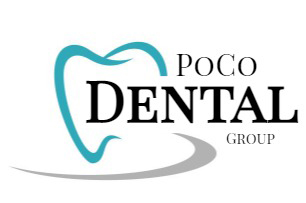Dental crowns are a widely used restorative option in dentistry, crafted to reinforce and safeguard weakened teeth. For Canadians considering or already having dental crowns, understanding their maintenance is crucial for ensuring their longevity and functionality.
What is a Dental Crown?
A dental crown is a tailor-made cap created to cover a harmed or decayed tooth, helping to restore its form, dimensions, durability, and look. It is securely cemented, covering the tooth’s visible part above the gum line.
Types of Dental Crowns
Dental crowns have a variety of types, each offering unique benefits and advantages.
- Zirconia Dental Crown: This is a type of tooth cap made from zirconium dioxide, a strong and durable ceramic material. It is used to restore damaged, decayed, or aesthetically compromised teeth, offering strength and a natural appearance.
- All-Ceramic or All-Porcelain Crowns: Offering the best natural colour match, these crowns are an excellent choice for front teeth. They are metal-free, making them suitable for patients with metal allergies. However, they may not be as strong as PFM crowns and can be more prone to chipping or cracking.
- Porcelain-Fused-to-Metal (PFM) Crowns: These crowns offer the durability of metal while maintaining the natural look of porcelain. They are durable and provide a natural tooth-like appearance. However, the metal underlying the porcelain can sometimes show through as a dark line, especially if the gums recede.
- Gold Crowns: Made from gold and/or other metal alloys, these crowns are highly durable and resistant to wear. They require less tooth structure removal and withstand biting and chewing forces well. However, their metal appearance makes them less ideal for visible front teeth.
Top 4 Benefits of Dental Crowns
Dental crowns offer numerous benefits, including:
- Protection: They shield weakened like root canaled teeth or damaged teeth from further decay or fracture.
- Restoration: Crowns help restore a tooth’s function, allowing normal biting and chewing.
- Aesthetics: They improve the appearance of teeth, especially when dealing with discoloration or misshapen teeth.
- Durability: With the proper care, dental crowns can last for many years, offering a durable solution to dental problems.
Potential Risks of Dental Crowns
While dental crowns are generally safe, potential risks include:
- Sensitivity: Post-procedure sensitivity to hot or cold can occur.
- Discomfort or Pain: Old or improperly fitted crowns can cause pain or discomfort when biting.
- Chipping or Loosening: Porcelain crowns can chip, and crowns can become loose over time if the cement washes out.
- Allergic Reactions: Some individuals may experience allergies to the materials used in dental crowns.
Dental Crown Materials: Pros and Cons
Choosing the right material for a dental crown depends on various factors:
- Zirconia Dental Crowns: Pros include exceptional strength, biocompatibility and stain resistance making them ideal for long-term use. Zirconia crowns are also metal-free and reduce the risk of allergic reactions. However, they can be more opaque than natural teeth and may cause wear on opposing teeth if not polished properly.
- All-Ceramic or All-Porcelain Crowns: The pros are superior aesthetics and metal-free composition; the cons include reduced strength compared to metal-based options.
- Porcelain-Fused-to-Metal (PFM) Crowns: Pros include durability and a natural appearance; cons include potential metal visibility and possible allergic reactions.
- Gold Crowns: The pros encompass exceptional durability and less tooth removal; the cons are their metallic appearance and higher cost.
Dental Crown Procedure
Step-by-Step Process of Getting a Dental Crown
The dental crown procedure typically involves:
- Preparation: The dentist removes a circumferential layer of the tooth and shapes it to accommodate the crown.
- Impression Taking: An impression of the prepared tooth is made to create a custom crown.
- Temporary Crown Placement: A temporary crown protects the tooth while the permanent one is fabricated.
- Permanent Crown Placement: Once ready, the permanent crown is cemented into place after fitting adjustments.
If you’re looking for high-quality dental crown services, consult our team of experienced dentists, who can help you choose the best option for your needs.
How Long Does a Dental Crown Procedure Take?
The process usually requires two visits: the first for tooth preparation 1.5 hour and impression taking and 30 min (after about two weeks) for permanent crown placement.
Lifespan of Dental Crowns: How Long Do They Last?
A dental crown’s lifespan typically ranges from 5 to 15 years, depending on the material and how well it is maintained.
Some crowns, like monolithic zirconia crowns, are more resistant to cracking under high bite forces, making them durable. Gold and porcelain-fused-to-metal crowns tend to have the most extended lifespans.
However, crown placement and daily habits can influence its lifespan. Proper care of dental crowns, including maintaining good oral hygiene and minimizing excessive pressure, can help them remain durable for many years.
What to Expect Before, During and After Dental Crown Placement
Local anesthesia ensures minimal discomfort during the procedure. After placement, mild sensitivity or discomfort is common, which typically subsides within a few days.
Choosing Between Crowns and Bridges
Choose a dental crown to restore a damaged tooth, and opt for a dental bridge if you have missing teeth and want a non-removable replacement without implants. Always consult your dentist to determine the best option for your specific needs.
Pain Management After Dental Crown Procedure
Post-procedure discomfort can be managed with over-the-counter pain relievers like ibuprofen. However, if the pain lasts over a few days, it’s best to consult your dentist.
Recovery Tips for Dental Crown Patients
- Avoid Hard or Sticky Foods: To prevent dislodgement, especially while wearing a temporary crown.
- Maintain Oral Hygiene: Brush, floss or waterpik around the crown daily to prevent plaque buildup.
- Use Desensitizing Toothpaste: If experiencing sensitivity, specialized toothpaste can provide relief.




